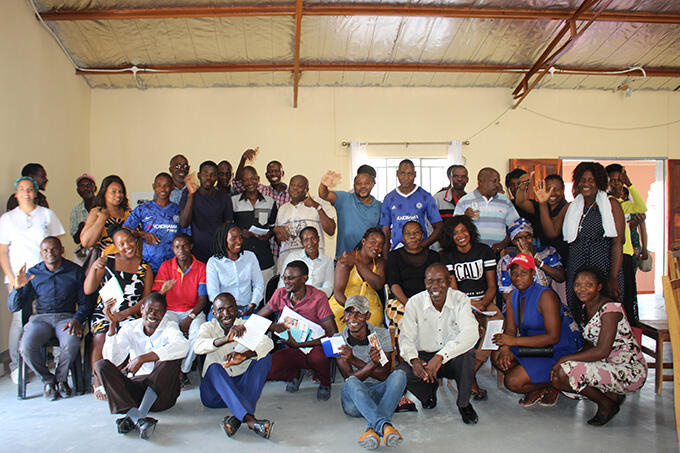WINDHOEK - Namibia, About 146 humanitarian workers from Kavango East and West regions benefitted from the sensitization training on Prevention of Sexual Exploitation and Abuse (PSEA), held in Rundu and Nkurenkuru on 4-5 and 6-7 February 2020 respectively.
Government and non-governmental organisation duty bearers, as well as community aid workers were taken through the categories of gender-related and sexual exploitation crimes, and prevention mechanisms available for them.
Participants were also introduced to the Minimum Initial Service Package (MISP) for reproductive health in emergencies. The MISP outlines a set of priority reproductive health services that should be implemented during the first phase of an emergency to prevent and manage the consequences of sexual violence, reduce HIV transmission, prevent excess maternal and newborn morbidity and mortality.
The training is part of UNFPA, FAO, UNICEF and WFP response to Namibia’s prolonged drought crisis. The response is funded by the UN Central Emergency Response Fund (CERF), and is focused mainly on lifesaving interventions including food assistance, medical commodities and training for the drought affected people especially women, adolescent girls and children.
Humanitarian workers are expected to maintain the highest standards of professional and personal conduct at all times and refrain from taking any action for their personal benefit. The overall objective of the training was to empower humanitarian to act in line with international humanitarian standards in order to address sexual exploitation and abuse through both prevention and response interventions.
“As duty bearers, it is our obligation to treat the beneficiaries of the assistance we provide with respect and dignity. Sexual exploitation could include someone asking a beneficiary for sexual favours in return for food. Humanitarian aid is free and beneficiaries should not feel compelled to give aid workers anything in return,” said Letisia Alfeus, UNFPA Namibia Gender Specialist.

Participants expressed an urgent need to raise awareness on SEA in communities, as well as protection and response issues. It was agreed that there should be a collaborative and collective effort to develop and disseminate SEA and gender based violence prevention communication materials. Participants stressed the importance of active mechanisms to receive complaints from beneficiaries, register and report, investigate and response for cases of SEA at the community level and beyond.
Siurungu Village Development Committee (VDC) chairperson, Hausiku Egidiush, one of the participants commended the UN agencies for organizing the training adding that it has increased their knowledge and understanding on the vice and how best to address it.
Emma Mbekele


